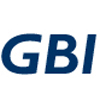
Smart Cities Require Smart Security
 As Information Communication Technology (ICT) takes a bigger place in our day-to-day lives, cyber security becomes an essential requirement, according to a new report by GBI Research.
As Information Communication Technology (ICT) takes a bigger place in our day-to-day lives, cyber security becomes an essential requirement, according to a new report by GBI Research.
The report stated that smart security represents a core product within the smart cities market due to the growing complexity of data management, which now presides over much of our day-to-day life and results in the threat of viruses and malware.
Smart security includes urban security components that protect citizens in public places, and infrastructure security components that protect the networks and systems vital for a city’s economy, such as electricity grids, rail transport, hospital communications and water systems. Urban security acts to prevent crime and violence through intelligent security solutions such as surveillance sensors, access controls and security networks, but infrastructure security components are also of vital importance to the working of all smart city infrastructures, causing chaos if they fail.
The infrastructure of a modern city is now often connected via ICT in order to enable better control, but this interdependence also increases security risks. State governments fear that loopholes in smart city technologies may hamper the entire communication network by triggering unwanted events, like the introduction of malware and viruses.
Today’s world is data-centric, and IT communication networks affect every aspect of life. Society’s dependence on information and communication infrastructures is continuously increasing, with potential and existing threats increasing in return.
Therefore, the protection of information and activities in cyberspace is of significant importance. Various internal threats, such as data loss, or theft and external threats, like malware or hackers, can be a cyber-risk. Cyber security is the integration of processes, practices and technologies developed to shield computers, networks, programs and data from such threats, making it extremely important for business and modern society.
The smart city market showed strong growth at a Compound Annual Growth Rate (CAGR) of 15% from 2012 onward, and revenue is expected to reach $1,026.3 billion, U.S. dollars by 2017. The smart security market will account for a significant 29.2% share of this, reaching a value of $298.3 billion, U.S. dollars by 2017. Smart education, smart healthcare and smart transportation are also set to witness notable increases in revenue share.
To view GBI Research's report entitled "Smart Cities Market to 2017 – Smart Security Segment to Flourish as Interoperability Standards and Public Private Partnerships Promote Growth," click here.